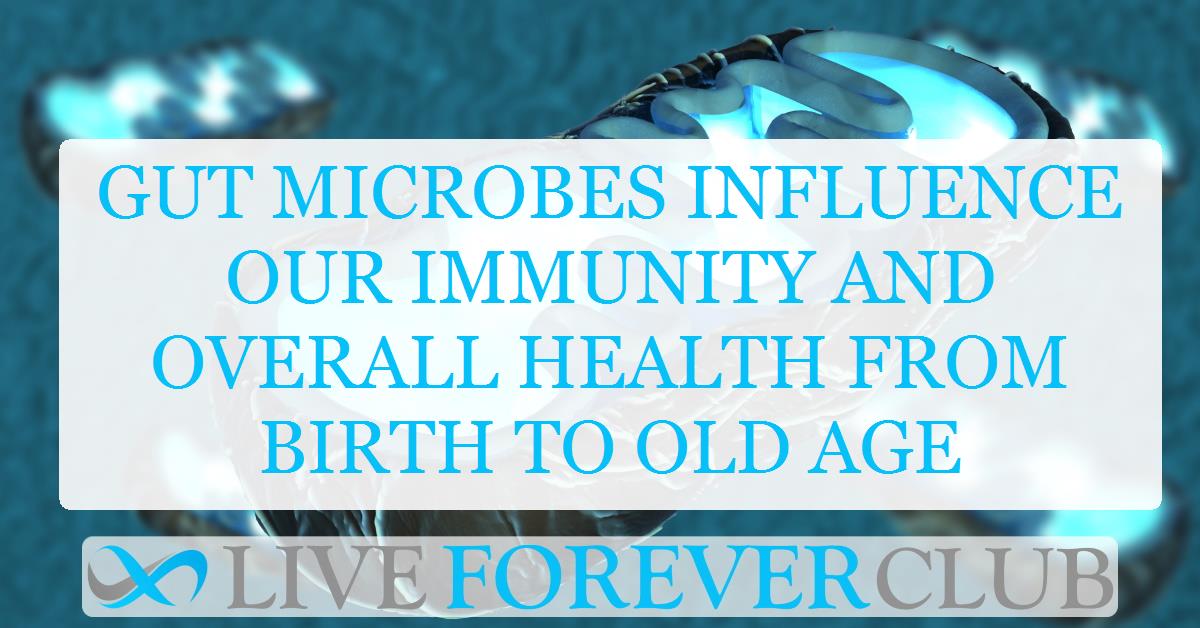Trillions of tiny, invisible workers are bustling about inside you, executing tasks critical for your daily well-being. Welcome to the fascinating world of your gut microbiome!
This bustling community of microorganisms, each fulfilling specific roles, profoundly impacts your health. From digestion to immunity, these minute inhabitants influence nearly every aspect of your well-being, with recent studies highlighting their significant role in how we age.
The Journey of Our Internal Companions
Walking hand in hand with us, from the cradle to our golden years, the composition of our gut microbiome changes dramatically over a lifetime.
Interestingly, the way we come into the world (via vaginal birth or cesarean section) and our infant diet (breast milk vs. formula) set the stage for our initial microbiome profile. Turns out, breastfed babies harbor more of the 'good bacteria' called Bifidobacterium, known to boost immunity.
The Adolescent Shift
As we transition into adolescence, our gut microbiome, much like us, matures and becomes more diverse and stable. During this period, the composition and functionality of our gut bacteria undergo significant changes.
This shift, influenced by various factors such as our diet, lifestyle, and interactions with the environment, paves the way for an 'adult-like' microbiome.
This mature microbiome plays a vital role in numerous bodily functions, from digestion and nutrient absorption to immune system regulation. Maintaining a healthy and balanced gut microbiome is crucial for keeping us healthy and preventing a range of diseases, including inflammatory and metabolic disorders.
Golden Years and the Microbiome
Senior years, however, often witness a decline in the diversity of gut microorganisms due to various factors such as diet, lifestyle, and overall health.
Though some changes in the microbiome correlate with old-age diseases like diabetes, cardiovascular issues, and cognitive decline, research on centenarians or "super-agers" reveals a different story.
Studies show that those who maintain a rich diversity and balance in their gut microbiome tend to live longer and healthier lives, often enjoying better physical and mental health well into their advanced years. This suggests that nurturing gut health could be a key factor in promoting longevity and quality of life in our later years.
Deciphering the Elderly Microbiome
Healthy elderly individuals often have a microbiome teeming with beneficial bacteria such as Bifidobacterium and Faecalibacterium. These bacteria produce vital anti-inflammatory compounds, thereby connoting a healthy gut and overall well-being.
The presence of these beneficial bacteria is linked to a variety of health benefits, including improved digestion, enhanced immune function, and a reduced risk of chronic diseases. Maintaining a balanced microbiome is crucial, as it can influence everything from mental health to metabolic processes, underscoring the importance of a nutritious diet and a healthy lifestyle for the elderly.
Diet's Role in Microbiome Health
Our gut microbes are, in many ways, what we eat. Diets rich in fiber, such as the Mediterranean diet, foster a diverse and healthy microbiome, which contributes to better digestion and overall health.
These diets typically include plenty of fruits, vegetables, whole grains, and legumes, all of which provide the necessary nutrients for our gut flora to thrive. Physical activity, too, is a boon for these microorganisms, as regular exercise has been shown to increase microbial diversity and promote a balanced gut environment.
On the flip side, a diet dominated by processed foods, high in sugar and unhealthy fats, along with a sedentary lifestyle, can upset these microscopic armies. This can lead to a less diverse microbiome, which has been linked to various health issues such as obesity, diabetes, and inflammatory diseases.
Therefore, maintaining a balanced diet and an active lifestyle is crucial for nurturing a healthy gut microbiome.
Microbiome: The Unsung Hero in Disease Prevention
Alterations in our gut microbiome have been linked to numerous age-related diseases, such as cardiovascular disorders, type 2 diabetes, and neurodegenerative diseases like Alzheimer's.
Emerging research suggests that the balance and diversity of microorganisms in our digestive tract play a critical role in maintaining overall health.
A diverse microbiome, rich in beneficial bacteria, is, therefore, an unsung hero in protection against these ailments. By supporting a varied gut flora through a balanced diet, probiotics, and lifestyle choices, we can potentially mitigate the risks associated with these serious health conditions.
Tapping into the Power of the Microbiome
We can harness the power of our gut microbiome to ensure a healthier aging process, primarily through dietary changes. High-fiber foods, probiotics, and prebiotics can significantly enhance our microbiome health.
However, the exact mechanisms remain largely undiscovered, and more research is required to zero in on the most effective strategies.
Turning the spotlight on the potential of microbiome-based therapies, the future may witness personalized probiotics, tailored specifically to an individual's unique microbiome. Such advances could pioneer treatments for neurodegenerative diseases, offering immense hope for a healthier aging process.
In conclusion, by nurturing our gut microbiome today, we're paving the way for a healthier future. It's about time we acknowledged the trillions of organisms working round the clock within us, protecting us from diseases, and embracing a lifestyle that allows them to thrive. After all, a healthier gut is synonymous with a healthier us!
The study is published in the journal Gut Microbes by Evan Bradley and team from UMass Chan Medical School.






